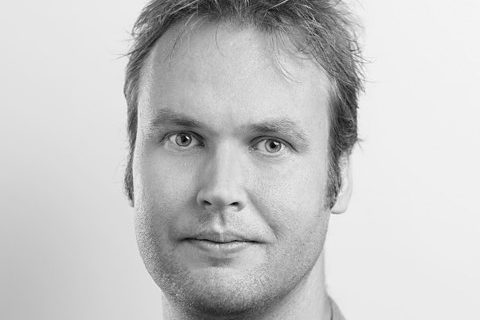A Health Care Data workshop took place on September 18 focusing on leveraging the value of health (care) data for research and clinical practice. Health Care Data is data produced and accessible for the individual patient as well as for health care professionals. The broader term Health Data includes not only clinical metrics but also environmental, socioeconomic, and behavioural information related to health and wellness, along with records of services received, conditions of those services, and clinical outcomes or information concerning those services.

We talked to the organizer of the workshop Sebastiaan Meijer, professor at Health Care Logistics and vice dean at the CBH school, and asked some questions.
What are the challenges or concerns with Health Care Data?
– The biggest concern is that the current way of managing this data in many systems is not sustainable in the long run and that the ultimate aim of enabling better health through data-driven innovation is hampered by the way we handle this data. The seminar went into the balance between health data versus health care data. While there is certainly a lot to do on better treatments, diagnosis and co-morbidity from pure health care data, the real challenge is on how to provide continuous health through continuous data on more than just the clinically collected data.
What was the purpose of the workshop?
– We are aware of the concern above, and in the workshop, we tried to bring together people from different backgrounds to get to a shared understanding of the causes and effects of the situation, and to lay a ground for joint interests to go forward, in a collaborative effort between technical, medical and organisational research, as well as system developers.
How was the workshop organized and who participated?
The workshop was announced widely, and a significant and very senior group of interested people showed up online. There were presentations and break-outs to discuss in smaller groups. The width of the participants was great, as we had people from hospitals, KI, KTH, SU and some other stakeholders.
– We had the people behind the Origo platform as part of the discussion, as they have worked for a long time on the actual challenges and have thought out one particular solution. By understanding this solution, the complexity became easier to discuss for all participants.
Mention some interesting findings/conclusions?
– Firstly, the joint recognition that current research lines do not really address the true issues, but that many researchers are interested in it and could think of future research projects. Secondly, that nobody, even at a European level, has the ultimate solution that is easily implementable. Certain directions exist, but require a lot of additional research and development from a multidisciplinary nature. And thirdly, that by concentrating on how we can go forward, we can leave certain dogmatic issues behind us.
What is the next step? What would you like to happen now?
– Ultimately, we hope that the seminar will lead to interesting research collaborations and the right Calls for Proposals. However, this will require to follow up from many stakeholders. I have seen some interesting connections happening after the workshop, concluded Sebastiaan Meijer.
The seminar agreed that the question that has long guided research and development, namely “what”, ie what data is to be collected, is the wrong question. People have different needs and the system requires flexibility in this regard. Collection of which data can be solved if you have a reliable system in place.
According to Britt Östlund, Professor KTH Department of Biomedical Engineering & Health, and one of the co-organisers in the workshop, it is rather “how” that is the more accessible question, ie how should the system guarantee accessibility at the same time as security and personal integrity. How can the person concerned gain influence over their data?
Another contributor, Fredrik Öberg, assistant chief physician in anaesthesia and intensive care at Nya Karolinska Solna and co-founder of the Origo program argued that “we roll up our sleeves and continue to care, repeating the same samples, examinations and often the same mistakes because we do not know what has already been tried and not worked. “Maybe the Origo program can provide light in the tunnel”, he says.
Presentations and videos from the workshop:
föreläsning_dataseminarie_Hanna_svensson
Blogg Oct 3 2020 “Forum för Health Policy” with Fredrik Öberg: https://healthpolicy.se/2020/10/15/ska-vi-sluta-prata-om-bara-halsodata/





